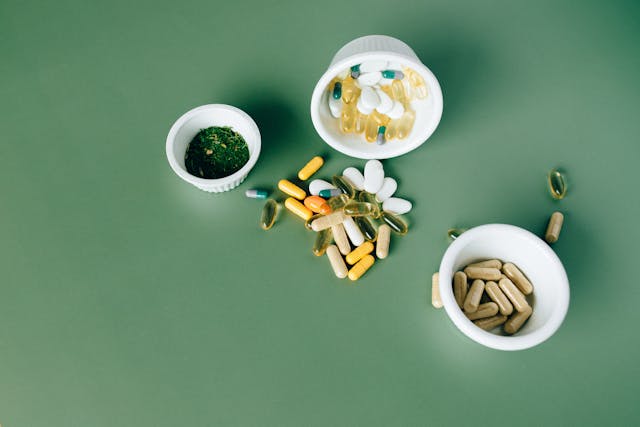For years, vitamin D supplements have been a cornerstone of advice for maintaining bone health and reducing the risk of fractures and falls, especially among older adults. However, recent research has called into question the efficacy of these supplements, sparking a debate within the medical community. In this article, we’ll explore the latest findings, their implications, and what experts recommend moving forward.
Understanding Vitamin D and Its Role in Bone Health
Vitamin D is a fat-soluble vitamin essential for the body to absorb calcium and phosphorus, two minerals critical for maintaining strong bones. It also plays a role in immune function and muscle health. Natural sources of vitamin D include sunlight exposure, fatty fish, fortified foods, and egg yolks. For individuals with insufficient exposure to these sources, supplements have often been prescribed as a preventive measure.
Recent Findings: The Efficacy of Vitamin D Supplements
A study published in the journal New England Journal of Medicine has revealed that vitamin D supplementation may not significantly reduce the risk of bone fractures or falls in the general population. This finding challenges long-standing assumptions about the universal benefits of vitamin D supplements.
Key Insights from the Research:
- Population Studied: The study examined over 25,000 individuals, making it one of the largest studies of its kind.
- Outcomes Measured: Rates of bone fractures and falls were not significantly different between those taking vitamin D supplements and those who were not.
- Dosage: The typical supplementation dosage studied was within recommended levels, indicating the results are not influenced by under- or over-dosing.
Why Supplements Might Not Be Effective for Everyone
Experts suggest that the lack of efficacy in preventing fractures and falls could stem from several factors:
- Adequate Baseline Levels: Many participants in the study already had sufficient levels of vitamin D, so supplementation offered little additional benefit.
- Individual Variation: The body’s ability to process and utilize vitamin D varies between individuals, influenced by genetics, age, and health conditions.
- Holistic Bone Health: Bone strength depends on multiple factors, including diet, exercise, and overall health. Solely focusing on vitamin D may overlook other critical aspects.
Implications for High-Risk Groups
While the general population may not benefit from routine vitamin D supplementation, certain high-risk groups may still require it:
- Older Adults with Limited Sun Exposure: The elderly, particularly those in care homes, often have limited exposure to sunlight, making supplementation necessary.
- People with Darker Skin Tones: Melanin reduces the skin’s ability to produce vitamin D from sunlight.
- Individuals with Specific Medical Conditions: Conditions such as osteoporosis, rickets, or malabsorption syndromes may necessitate supplementation under medical supervision.
Expert Opinions and Recommendations
Dr. Clifford Rosen, an endocrinologist, highlights that vitamin D should not be viewed as a magic bullet for bone health. Instead, experts advocate for a more holistic approach:
- Focus on Nutrition: A calcium-rich diet, including dairy products, leafy greens, and fortified foods, remains vital for bone health.
- Exercise Regularly: Weight-bearing exercises like walking, running, and strength training enhance bone density and reduce the risk of falls.
- Get a Blood Test: Checking vitamin D levels can help determine whether supplementation is necessary.
Quote from Dr. JoAnn Manson, Study Lead:
“For the vast majority of adults, supplementation with vitamin D is unlikely to reduce the risk of falls and fractures. However, it may still have other health benefits worth exploring.”
Practical Tips for Maintaining Bone Health Without Sole Reliance on Supplements
- Get Natural Sunlight: Aim for 10-30 minutes of sun exposure several times a week, depending on your skin tone and location.
- Incorporate Strength Training: Exercises like resistance bands and weightlifting promote bone and muscle strength.
- Optimize Calcium Intake: Combine foods like yogurt, cheese, almonds, and tofu into your diet.
- Avoid Smoking and Excessive Alcohol: These habits can weaken bones over time.
- Consider Fortified Foods: Opt for cereals, juices, and plant-based milks enriched with vitamin D.
Potential Risks of Over-Supplementation
While vitamin D is generally safe when taken in appropriate doses, excessive intake can lead to:
- Hypercalcemia: High calcium levels in the blood, which can cause kidney damage and cardiovascular issues.
- Toxicity Symptoms: Nausea, weakness, and kidney stones may occur with prolonged over-supplementation.
Safe Dosage Guidelines:
The recommended daily allowance (RDA) for vitamin D varies by age and condition:
- Adults: 600-800 IU/day
- Older Adults: Up to 1,000 IU/day
- Upper Safe Limit: 4,000 IU/day
Key Takeaways on Vitamin D and Bone Health
| Aspect | Details |
|---|---|
| Study Conclusion | Vitamin D supplements may not significantly reduce fractures or falls in the general population. |
| Who Still Needs Supplements? | Elderly, people with limited sunlight exposure, and those with specific conditions. |
| Best Natural Sources | Sunlight, fatty fish, egg yolks, fortified foods. |
| Other Key Strategies | Regular exercise, calcium-rich diet, avoid smoking and excessive alcohol. |

